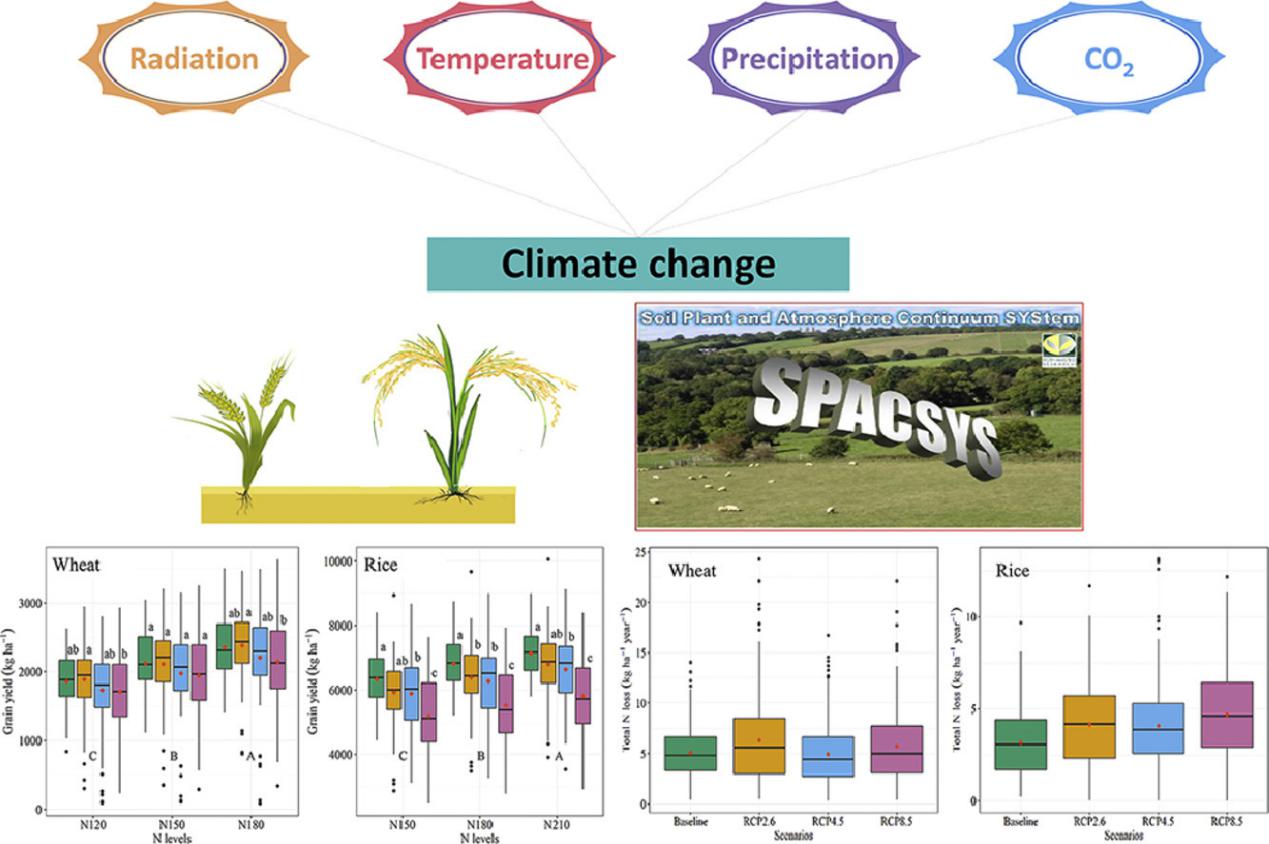Name:LIU Yi
Tell:
Email:liuyi@wbgcas.cn
Organization: Wuhan Botanical Garden
Validated SPACSYS Model Enlightens Wheat-rice Cropping System
2020-10-27
Climate change, such as increased atmospheric CO2 concentration, climate warming, and increasing precipitation intensity, may make agriculture and natural ecosystems in many parts of the world unable to adapt or unable to quickly adapt to such changes, leading them to great destructive effects: forest vegetation destruction and agricultural disasters. In agriculture, climate change mainly affects the growth and sustainable development of crops in farming systems (such as rice-wheat rotation), which in turn will adversely affect China food security.
In order to determine the impacts of climate change on winter-wheat and rice rotation, Dr. LIU Chuang, co-advised by Prof. CHEN Fang and LIU Yi of Wuhan Botanical Garden, and WU Lianhai of Rothamsted Research investigated the climate change and environmental impacts on wheat-rice rotations in southern China using crop model SPACSYS (Soil-Plant-Atmosphere Continuum SYStem), and assessed variations of yield, nitrogen (N) contribution before anthesis to grain, and adaptation strategies for production.
Process-based agricultural simulation models are effective tools which can be applied to assess the potential impact of climate change and agronomic practices on yield and nutrient cycling. The model was first evaluated using crop production and N accumulation data from three-year field experiments (2015-2018), and then applied to simulate production and N processes under three representative concentration pathway (RCP) scenarios for the wheat-rice cropping region, with projections for the years 2020 to 2100.
Results indicated that N management and shifting sowing or transplantation dates could greatly mitigate the yield losses and N contribution efficiency (ANCE) reduction in the winter wheat-rice rotation system. Delaying sowing dates of winter wheat and advancing transplantation dates of rice in the future could reduce N losses via leaching and surface runoff. However, combined higher fertilizer application rates (180 kg N ha-1 for wheat and 210 kg N ha-1 for rice) and climate change scenarios in the model significantly increased N losses to the environment. Careful N management practices (150 kg N ha-1 for wheat and 180 kg N ha-1 for rice) can effectively reduce N pollution and maintain a higher level of crop yields in the future.
Changing commencement of growing seasons along with appropriate N management practice is a potential way to increase resilience of agricultural systems to climate change.
This work was financially supported by the National Key Research and Development Program of China and Special Fund for Agro-scientific Research in the Public Interest of China. LIU Chuang received funds from the China Scholarship Council. Kate Le Cocq and WU Lianhai were supported by the BBSRC Institute Strategic Programme grant, “Soils to Nutrition”. LIU Yi was supported by the Young Backbone Talents Project of Wuhan Botanical Garden, CAS. Wuhan Botanical Garden and Rothamsted Research Co-participated in the research.
Relevant research results have been published in Agricultural and Forest Meteorology entitled “Climate change and environmental impacts on and adaptation strategies for production in wheat-rice rotations in southern China."

Framework for the adaptive strategy for the wheat-rice cropping system (Image by WBG)